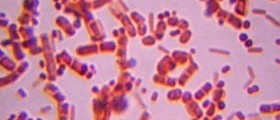
Food poisoning is a disease which is triggered by toxins, bacteria, viruses or parasites as well as other kinds of harmful microorganisms present in the food a person can eat. Upon eating this contaminated food, one gets food poisoning and suffers from numerous symptoms the basic of which are vomiting and abdominal pain accompanied by diarrhea. Even though this disease usually affects a person’s gastrointestinal tract, kidneys, brain or muscles may suffer the consequences too.
Types of Food Poisoning
Most causes of food poisoning trigger diarrhea and vomiting for a couple of days and then subside on their own. However, during this time, a person may lose excessive fluids and dehydrate. This common disease affects about 76 million of people around the world each year, with 325,000 of them ending up in hospitals and 5,000 ending up dead.
There are more than 200 potential triggers of food poisoning. For example, sometimes a bacterium is not the cause behind a food poisoning but rather the poison which the bacterium produces in the food before we eat it.
Poorly cooked or stored food can release chemicals which may then trigger food poisoning. For example, some fish release histamine which can trigger scombroid poisoning which causes facial swelling, itching and breathing and swallowing difficulties. Some bacterial infections can be mistaken for food poisoning even though the contamination took place due to swimming in or drinking contaminated water or getting in contact with someone infected.
Signs of Food Poisoning
As it was mentioned above, most commonly, food poisoning symptoms and signs include abdominal cramps, vomiting and diarrhea along with the possibility of dehydration. Nevertheless, if a different organ gets affected by food poisoning, the symptoms will be different as well.
Norwalk virus is quite a common trigger of these signs, since it triggers what we know as stomach flu, a condition which is often mistaken for food poisoning. However, this flu does not have to affect one through food. Either way, it manifests through the well-known symptoms for about 24 hours, after which is disappears.Seeking Help in Case of Food Poisoning
If your food poisoning experience gets accompanied by fever, blood in the stool, weakness, decreased urination and lightheadedness, seek medical assistance. Also, in any cases when diarrhea bothers you for longer than 72 hours or in situations when vomiting prevents you from breathing properly, make sure you seek immediate medical treatment.
All in all, food poisoning can give you a couple of days to worry about, while, at the same time, it can make your life miserable or even jeopardized. Thus, make sure you react to it timely and adequately.

















Your thoughts on this
Loading...